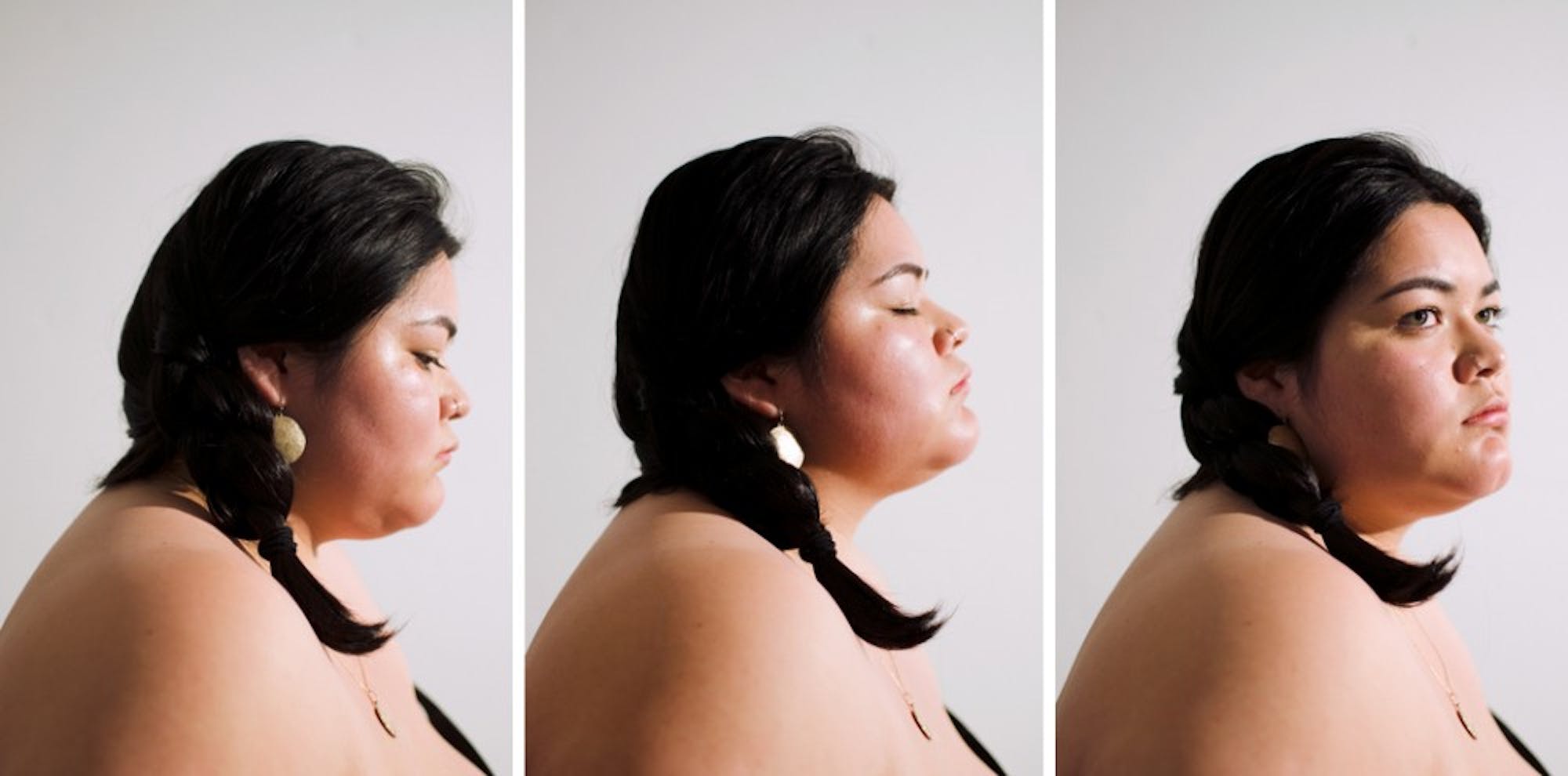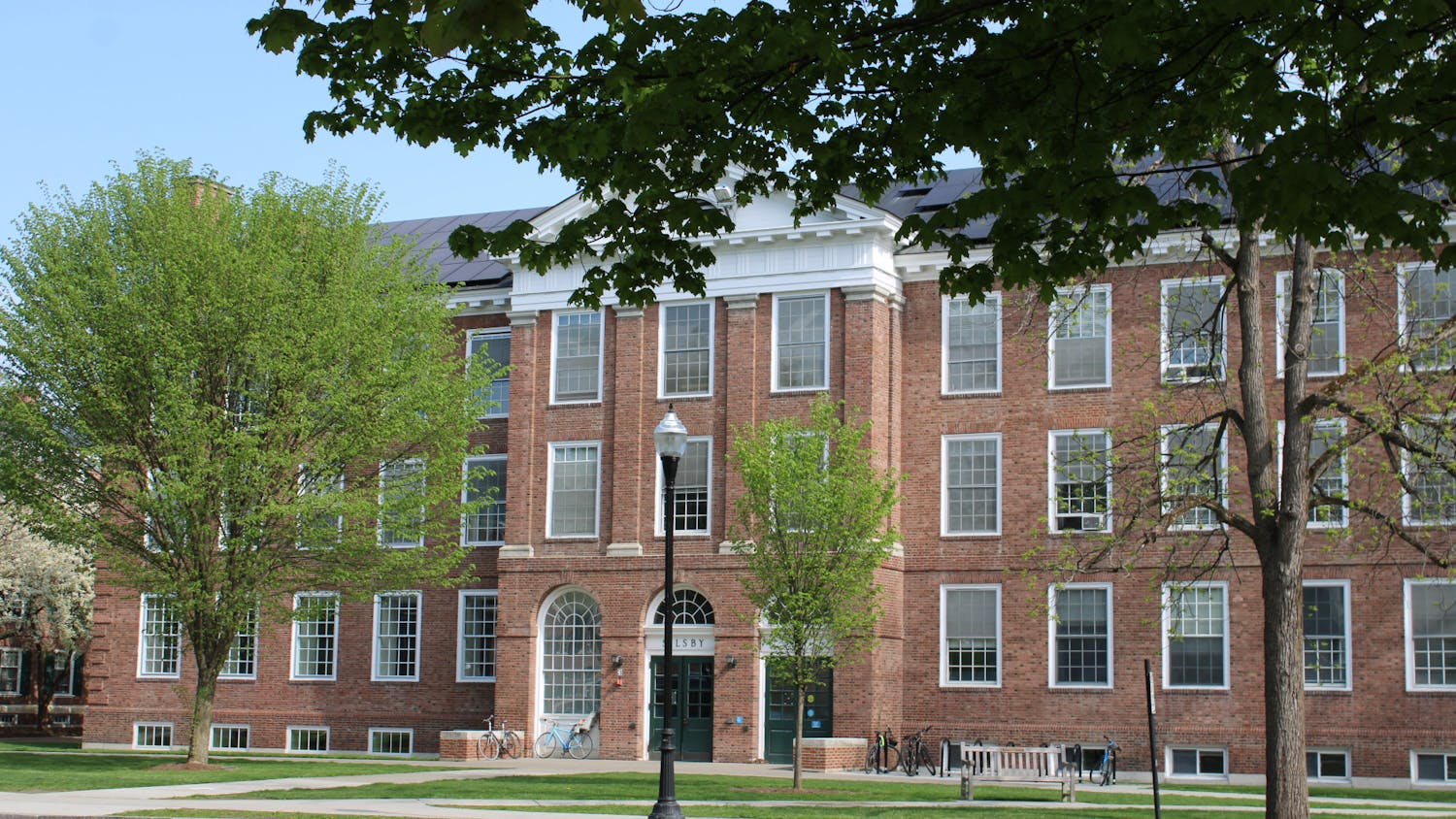Dartmouth’s isolated location and idyllic campus can often feel like a haven from pressing social issues, lulling students and faculty into complacency. Painter, photographer and poet Cecilia Torres ’18 confronts issues of racism and representation in an effort to reach beyond this veil of comfort, using her brush, pencil, camera and words as weapons in the battle to make minorities’ voices heard on campus.
A studio art major with a concentration in photography, Torres has spent her past three years at Dartmouth forging her craft into a medium of not only aesthetic artistry but also expression of her roots as a Latina female and first-generation college student.
Now an omnipresent theme in her bodies of work, the many motherly figures in Torres’ life were fountainheads of her interest in studio art. In her grandmother, Torres recognized a yearning to create that paralleled her own desire. However, Torres’ grandmother was unable to pursue the fine arts and instead had to work, a reality that contributes to Torres’ personal awareness of the correlation between financial and social circumstance and art in its institutionalized form.
“She didn’t have the privilege to pursue art, and that’s a huge conversation that a lot of artists don’t talk about,” Torres said. “It is such a privilege to be an artist. We have to be mindful of the space we take and why we make art.”
However, despite her dedication to the arts today, Torres came to Dartmouth with the intention of pursuing neuroscience, mirroring her grandmother’s sacrifice of art for financial stability.
“Coming from an immigrant family as a first-generation college student, I had to think practically, because that’s how I could survive,” Torres said. “It was difficult to follow my passions because I had to think about how every decision I made affected those around me financially and emotionally.”
Torres cemented her decision to commit to majoring in studio art when she studied abroad in Italy, where she discovered that art was at the crossroads of politics and social life. Although inspired by the artwork of the likes of Leonardo Michelangelo, Torres began to notice the largely Eurocentric nature of institutionalized art, which she felt excluded people of color.
“I didn’t yet understand my role in that playing field with all of the identities that I carry,” Torres said. “I was trying to be an artist of color in this space and trying to understand how I fit into it, but I couldn’t because we didn’t. We didn’t exist in that narrative; we were actively taken out of that narrative.”
Since Torres’ realization that her conversation with the current climate in society could manifest itself through art, she has sought to shed light on issues of race, gender and representation on campus through her work. In particular, she focuses on redefining studio art to include what Eurocentric art does not.
“B.R.U.S.H.E.D.,” a series of portraits that features the photos and voices of students of color, represented Torres’ first venture in fusing practical elements of film photography with the social issues at Dartmouth.
Ty Metteba ’20, who modeled for Torres, was struck by her artistic vision and praised the role it played in dismantling Eurocentric beauty standards and facilitating representation.
“[The series] gave me the opportunity to show the school that I am Native, and that we are still here,” Metteba said. “I’m not just some artifact in an old history book that doesn’t exist anymore.”
Torres’ next series, “Vox Silentium,” pictured women of color with iconographic Dartmouth architecture, commenting on the societal norms that pervade Dartmouth.
Hannah Nelson, a studio art instructor who aided Torres on the project, noted Torres’ affinity for bringing to light issues that remain underrepresented.
“Students literally held back tears when she showed her work,” Nelson said. “I think it’s because she’s tapping into something that is felt deeply and has been felt deeply for some time.”
Torres’ latest work, “The Holy Trinity,” returned to the appreciation of motherly figures in her life, which she communicated through a variety of media. The work features photos of Torres herself merged with passport photos of her grandmother, making reference to immigration and the movement of identity through space. Expanding beyond the comfort of photography as a medium, Torres incorporated poetry and sound into the installation, culminating in an exhibition that delved into the depths of her personal relationship to the mothers in her life and how she has adopted their identities as critical elements of her own.
“I think that the nuances of identity are something a lot of people don’t feel comfortable exploring,” said Mariana Webb ’18, who has modelled for Torres. “She isn’t guided by the principles of what art should be.”
Beyond Dartmouth, Torres has encountered misrepresentation of her identity under the constraints of institutionalized art, forcing her to question her own career as an artist. Earlier this year, Torres declined an offer to be featured as a rising college photographer in Glamour magazine. While the offer presented her with the opportunity to gain further recognition as an artist, Torres felt that accepting the offer would contradict her commitment to raising awareness of underrepresented minorities and diverging from fine art as an institution.
“It went against a lot of my beliefs and ideals, as they were asking me to give them an image and a story of a woman of color, and they would decide if the story — and the person — were good enough to be featured,” Torres said. “It felt like a gross display of the labor that women of color put into their art and the system continues to erase.”
Torres has since been forced to reconsider her future as an artist and whether she could tread the line between pursuing her passion and subscribing to the institution art has become. Despite her commitment to promoting thought contrary to that of Eurocentric art, Torres recognizes that her own privilege as an Ivy League student mars her protestation.
“Do I want to participate in the elitist system that art has always been?” Torres said. “No. But I’m at in the studio art department at Dartmouth College, an Ivy League institution, and I am participating in that system. As a woman of color, I’m essentially making space for myself thereby disrupting the system. But I’m still working within it.”
Currently, Torres is in the midst of founding the Artists of Color Collective, a group established upon the belief that representation is an essential facet of encouraging aspiring artists on campus. Torres began the group to invite artists of color to Dartmouth in response to the absence of women of color in Dartmouth’s faculty as well as to provide an environment where students of color can exhibit their art.
As Torres evolves as an artist during her final year at Dartmouth, she is contemplating both her roots and her artistic path moving forward.
“I’ve always grown up with art around me in one way, shape or form, but it was never what we call ‘fine arts,’” Torres confides. “I made a personal promise that my art had to go beyond just aesthetics, and if it ever didn’t, if it ever were just pure aesthetics, then I shouldn’t be an artist.”




